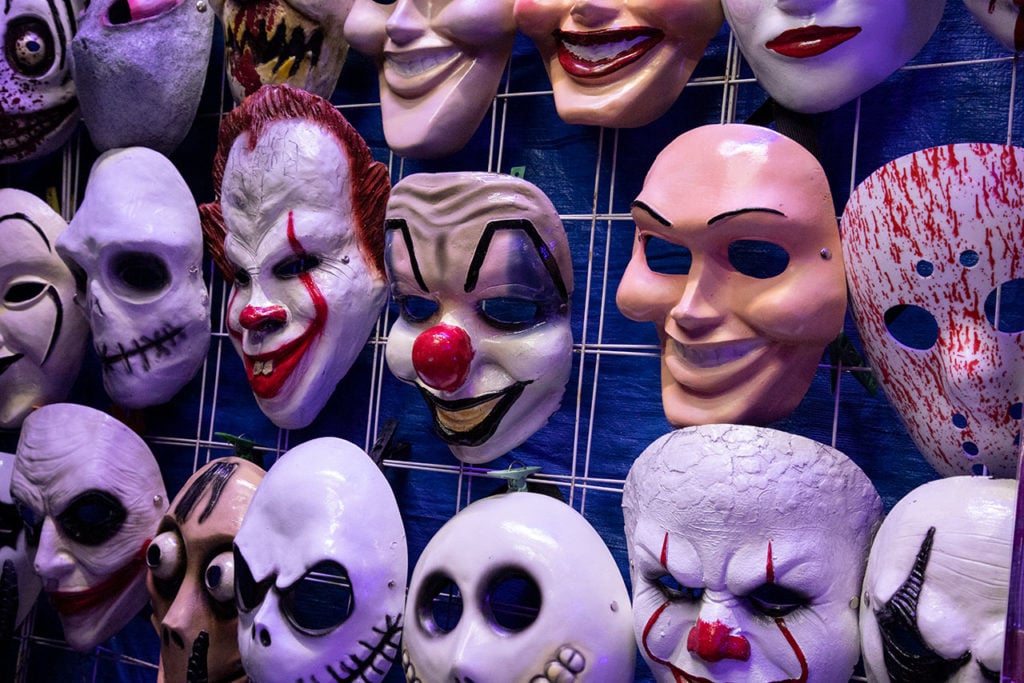
To listen to this reflection as a podcast, click here.
It’s that time of year again.
Why do we break out scary masks every Halloween, pretending to be demons, vampires, ghouls, or one of the Kardashians?
The best guess of historians is that Halloween is the semi-Christianized version of an ancient Celtic festival on October 31-November 1 called Samhain (pronounced SAW-win) which marked the beginning of winter.
Celtic lore suggested that during Samhain the boundary between the world of the living and the realm of the dead became unusually thin. Apparitions from beyond the grave might therefore take nighttime strolls through the villages of Scotland, Ireland, and Wales. This was assumed to be a direct threat to that village’s hope for surviving the winter, and wasn’t particularly good for tourism, either.
What defense could one mount against the walking dead?
The Druids, who represented the thoughtful domain of Celtic culture, taught that villagers might give them “treats” of food. Otherwise the spirits might play “tricks” on the living.
Then there was the mask option. You could make yourself look scary and frighten the dead back to the grave. Some Druids believed that donning a mask allowed the wearer to take on the attributes of the creature that was represented.
Which brings us to an entirely different kind of scary mask – the ones we sometimes wear to hide our true intentions.
The author of Proverbs 26:24-25 warned against the dangers of relational hide-and-seek: “Your enemy shakes hands and greets you like an old friend, all the while conniving against you. When he speaks warmly to you, don’t believe him for a minute; he’s just waiting for the chance to rip you off.” We should all be on guard against con artists.
But there is a much subtler way in which we wear masks in the company of others. Sometimes we even conceal our motives from ourselves.
I may display a smile that says “yes,” and speak encouraging words concerning the ideas you just presented. But what I’m really doing is avoiding a difficult conversation. I don’t want to face the discomfort of telling you, to your face, what I’m really thinking and feeling. So I resort to a cover-up, assuming I can always figure out a behind-the-scenes way to make sure my views prevail.
This is an all-too-common crisis of authenticity. And there’s a lot at stake.
When all is said and done, neighbors, family members, and team members can only walk with each other if there is shared trust – an implicit confidence that our cards are on the table for all to see. Trust is founded on the expectation that our Yes means Yes and our No means No.
As Jesus says in the Sermon on the Mount, “And don’t say anything you don’t mean… You only make things worse when you lay down a smoke screen of pious talk, saying, ‘I’ll pray for you,’ and never doing it, or saying, ‘God be with you,’ and not meaning it. You don’t make your words true by embellishing them with religious lace. In making your speech sound more religious, it becomes less true. Just say ‘yes’ and ‘no.’ When you manipulate words to get your own way, you go wrong” (Matthew 5:33-37, The Message).
So what can we do?
Ask God for the grace and the power to drop your mask.
Tell the truth – mean what you say – and leave it at that.
For those around you, that will turn out to be the ultimate Halloween treat.
